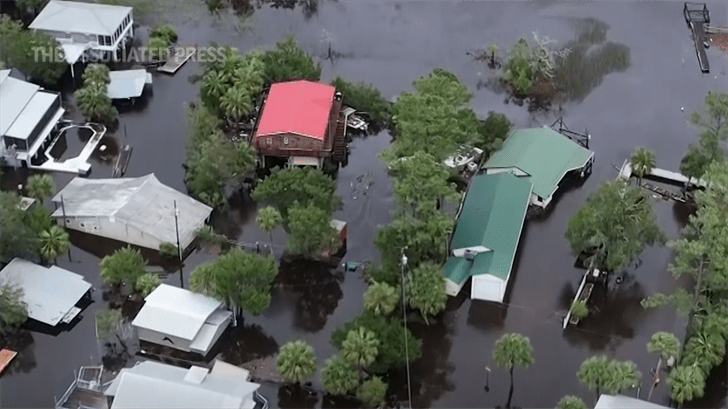PUNTA GORDA, Fla. (SNN TV) — Florida homeowners are paying the most in the country for home insurance on average – $6,000 a year in Florida’s private market, compared to $1,700 nationally, according to the Insurance Information Institute.
Those on Florida’s government insurance are typically paying much less, but that gap is about to close. Punta Gorda resident Steve Rubin says he’ll soon have to pay for extra insurance due to a new bill the Florida legislature passed last year.
“That puts a tremendous hardship on someone like me living on social security,” Rubin said. Rubin is a customer of Citizens Insurance—the state’s insurer of last resort—after his previous insurer declared bankruptcy.
“The state placed me with Citizens Insurance,” said Rubin.
He lives in a manufactured home, so his increases have not been as extreme as Floridians with bigger homes.
“Of course, they’ve had some increases—$30, $40, $50 a year increases,” Rubin said, “Each one upset me, but as soon as I checked with another quote elsewhere, they were hundreds more.”
But with a new Florida law in place, he will have to buy flood insurance as a condition of having Citizens Insurance.
“The flood insurance is two months of social security checks, and that’s pretty daggone close to right on to what it is. I remember years ago people saying flood insurance is cheap. Well, it’s not cheap anymore,” Rubin explained.
In fact, Florida flood insurance is higher than the national average. And it’s expected to grow under FEMA. The average cost of insurance in Florida is $958. The average risk-based cost of insurance is $2,213. What does that mean? That means by up to 18 percent a year, the yearly $958 policy will increase until it eventually matches the risk-based cost of $2,213.
Insurance Information Institute spokesperson Mark Friedlander suggested shopping around for private insurance since dozens of companies write flood policies for Florida.
“And most of those write coverage at a lesser premium than FEMA’s national flood insurance program, so you can actually save and get a better policy, meaning more protection, through a private policy than you can through the National Flood Insurance Program,” Friedlander explained.
Rubin said he’s weighing whether to dig into his savings, should he not find better insurance, or whether he should live without the insurance.
“If I lose the home, I lose the home,” he said, though he later said given his hurricane experience in Florida, he believed there was a chance, but it was unlikely.
This is something Friedlander said has been a dilemma many Floridians are unfortunately grappling with.
“[Floridians figure] ‘Well, I’ll take my chance. Insurance got too expensive, I no longer have a mortgage, or I never had a mortgage, I paid in cash, [so] I’ll take my chance,” Friedlander said. “The question you have to ask is can you and your family financially afford to rebuild your home if you suffer a catastrophic loss from a hurricane or another hazard for a house fire.”
Although it’s risky, Friedlander said you can increase the deductible to lower your premium. But he always recommends, despite the cost, to maintain your coverage. To see when you’re required to have flood insurance as a Citizens customer, go to Citizens’ website.
